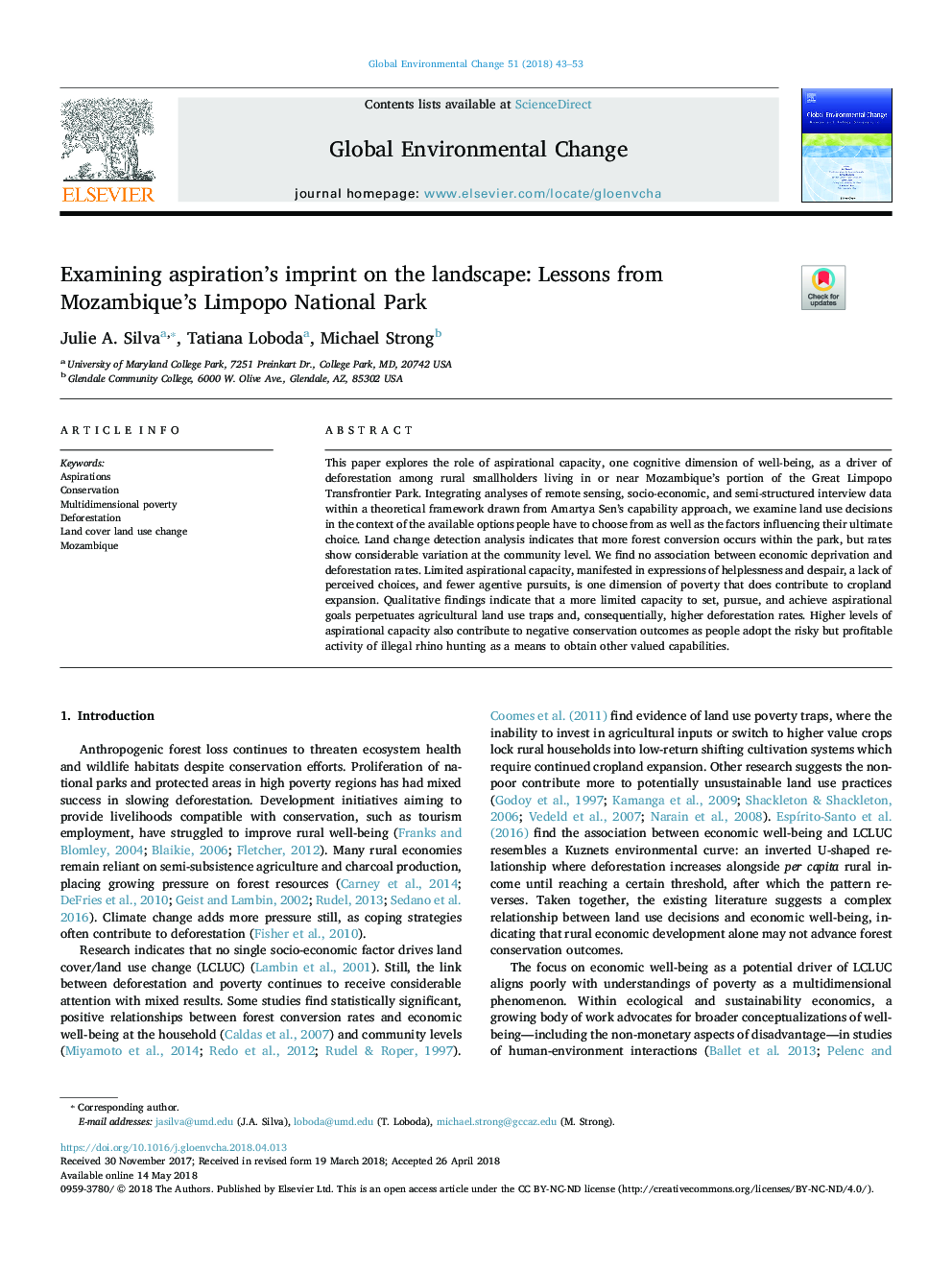| Article ID | Journal | Published Year | Pages | File Type |
|---|---|---|---|---|
| 7468772 | Global Environmental Change | 2018 | 11 Pages |
Abstract
This paper explores the role of aspirational capacity, one cognitive dimension of well-being, as a driver of deforestation among rural smallholders living in or near Mozambique's portion of the Great Limpopo Transfrontier Park. Integrating analyses of remote sensing, socio-economic, and semi-structured interview data within a theoretical framework drawn from Amartya Sen's capability approach, we examine land use decisions in the context of the available options people have to choose from as well as the factors influencing their ultimate choice. Land change detection analysis indicates that more forest conversion occurs within the park, but rates show considerable variation at the community level. We find no association between economic deprivation and deforestation rates. Limited aspirational capacity, manifested in expressions of helplessness and despair, a lack of perceived choices, and fewer agentive pursuits, is one dimension of poverty that does contribute to cropland expansion. Qualitative findings indicate that a more limited capacity to set, pursue, and achieve aspirational goals perpetuates agricultural land use traps and, consequentially, higher deforestation rates. Higher levels of aspirational capacity also contribute to negative conservation outcomes as people adopt the risky but profitable activity of illegal rhino hunting as a means to obtain other valued capabilities.
Related Topics
Life Sciences
Environmental Science
Environmental Science (General)
Authors
Julie A. Silva, Tatiana Loboda, Michael Strong,
